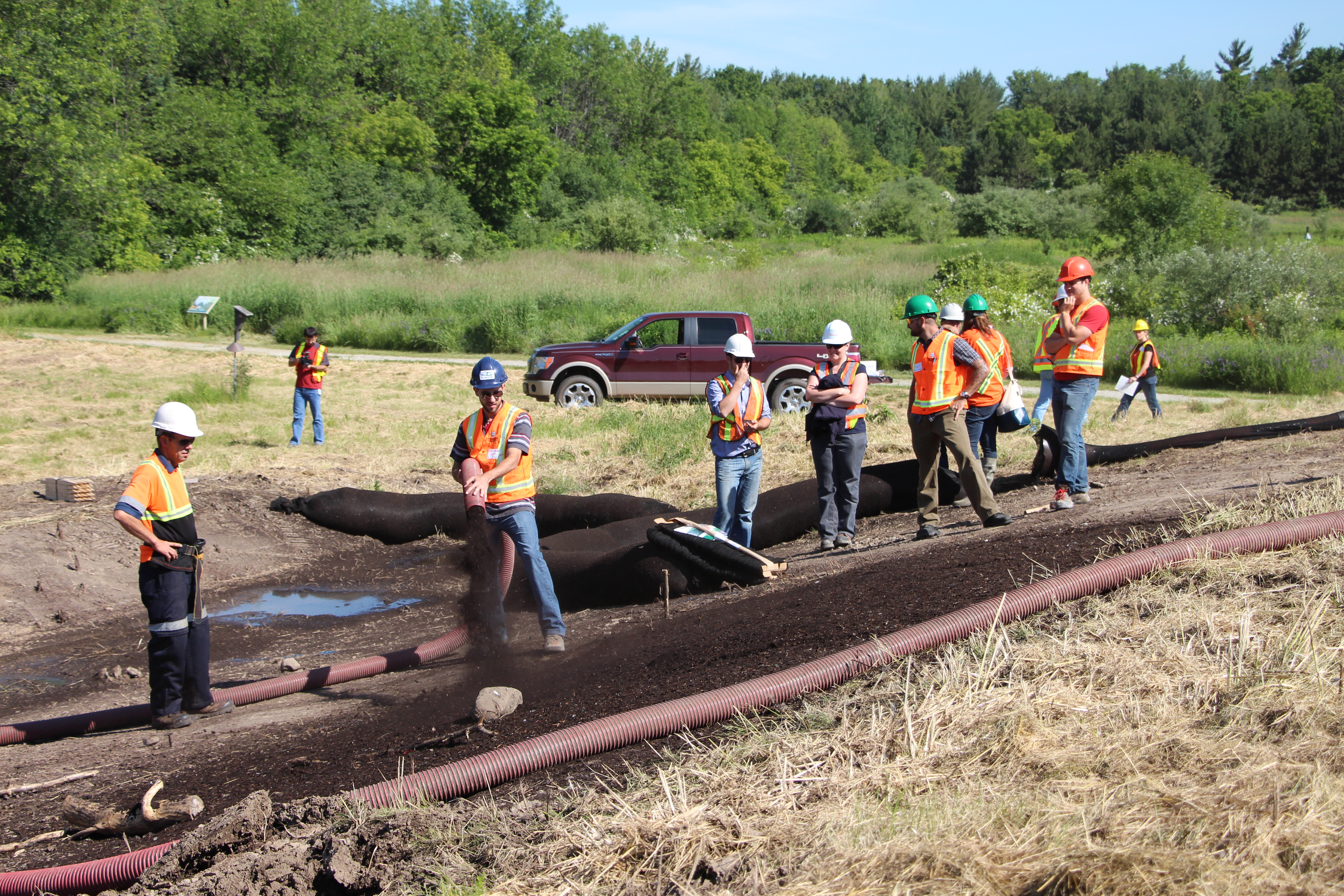Education and Resources for Water Management Professionals
Increased urban development, aging infrastructure, and the need to build resilience and adapt to climate change are just some of the water management challenges facing communities across Canada today. Water management practitioners need more robust tools and practical guidance to effectively manage the obstacles ahead. The water component of the Sustainable Technologies Evaluation Program (STEP) is focused on supporting industry professionals by providing data, decision support tools, guidance documents, and training opportunities that reflect the best available knowledge on sustainable water management.
STEP currently provides these services in the following key focus areas:
- Urban runoff and low impact development
- Erosion and sediment control
- Road salt management
- Preserving and restoring natural features
STEP is a multi-agency initiative developed to support broader implementation of sustainable technologies and practices within a Canadian context. The water component of STEP is a Conservation Authority collaborative between Toronto and Region Conservation Authority (TRCA), Credit Valley Conservation (CVC), and Lake Simcoe Region Conservation Authority (LSRCA). STEP collaborates with all levels of government and private industry to support its work. STEP conducts monitoring and research studies into emerging technologies and innovative practices and makes all reports other resources publicly available in a comprehensive online resource library. STEP also develops decision support tools that aid practitioners in the design, selection, costing and implementation of technologies and best practices. These include:
- The Low Impact Development Treatment Train Tool, which analyzes annual and event based runoff volumes and pollutant load removal by the use of best management practices (BMPs) and low impact development (LID) techniques.
- The Low Impact Development Planning and Design Guide WIKI, a resource for designers, regulators and managers of stormwater infrastructure to stay current with best practices and industry research. The online format of the guide means it can be easily updated, modified and enhanced as new information becomes available.
- The Low Impact Development Costing Tool, a spreadsheet decision support tool based on cost calculations gathered from RS Means, industry surveys and other sources, and developed to assist industry professionals estimate the capital and life cycle costs of site specific LID practice designs. The tool provides users with a comprehensive understanding of all relevant costs, facilitates cost comparisons and allows users to optimize proposed designs based on both performance and cost.
STEP also provides in-class, online and in-field training. STEP’s training program is an extension of the research, knowledge and tools developed through the program and is aimed at educating and building capacity within the industry. STEP provides practical, experienced-based training, delivered by Conservation Authority staff and leading industry experts to ensure that participants acquire the appropriate knowledge, skills and abilities to meet rising challenges and business needs.
“The training provided by STEP has been invaluable to not only the staff of the City of Thunder Bay, but also to our local consultant and construction industry as well. The combination of in-class training based on tangible real-world examples, and field tours of existing facilities, really helped to pull everything together and allowed for an engaged conversation by all participants,” said Aaron Ward, a Project Engineer with the City of Thunder Bay’s Infrastructure and Operations Department. “The City of Thunder Bay would recommend that any municipality interested in emerging stormwater technologies and approaches participate in training from the knowledgeable staff and partners involved with STEP.”
For more information or to view our complete listing of course offerings, visit: https://sustainabletechnologies.ca/events.


